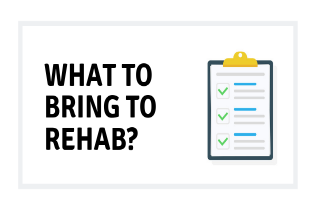How do you know you’re ready for rehab?
You may have tried to stop drinking many times in the past and feel you have no control over it. Or, you may be thinking about stopping, but you’re not sure if you’re ready for the next step. Motivation to quit drinking can be tricky.
You likely have a drinking problem when your body depends on alcohol to function and your drinking is causing problems with your health, social life, family, or job. Recognizing that you have a drinking problem is the first step toward being alcohol-free. Try not to be discouraged! If you think you have a problem with drinking, you probably do and should not ignore it.
How to recognize a drinking problem
So let’s help you on your way by first defining what an alcohol problem really is and who should attend a rehab for alcoholics. Problem drinking is a pattern of drinking that results in harm to one’s health, interpersonal relationships, or ability to work. Dependency on alcohol, also known as alcohol addiction and alcoholism, is a chronic disease. The signs and symptoms of alcohol dependence include:
1. A strong craving for alcohol.
2. Continued use despite repeated physical, psychological, or interpersonal problems.
3. The inability to limit drinking.
Doctors diagnose an alcohol use disorder when a patient’s drinking causes distress or harm. See if you recognize any of these additional symptoms in yourself. And don’t worry! It helps to know the signs so you can make a change early.
Have you:
- continued to drink after drinking added to another health problem?
- continued to drink after having a memory blackout?
- continued to drink even though it was causing trouble with your family or friends?
- continued to drink even though it was making you feel depressed or anxious?
- found that drinking (or being sick from drinking) often interfered with taking care of your home or family? Or caused job troubles? Or school problems?
- found that when the effects of alcohol were wearing off, you had withdrawal symptoms, such as trouble sleeping, shakiness,
- restlessness, nausea, sweating, a racing heart, or a seizure? Or sensed things that were not there?
- found that your usual number of drinks has much less effect than before?
- given up or cut back on activities that were important or interesting to you, or gave you pleasure, in order to drink?
- had times when you ended up drinking more, or longer, than you intended?
- had to drink much more than you once did to get the effect you want?
- more than once wanted to cut down or stop drinking, or tried to, but couldn’t?
- more than once gotten arrested, been held at a police station, or had other legal problems because of your drinking?
- more than once gotten into situations while or after drinking that increased your chances of getting hurt (such as driving,
- swimming, using machinery, walking in a dangerous area, or having unsafe sex)?
- spent a lot of time being sick or getting over other after effects of drinking?
- spent a lot of time drinking?
If you recognize your behavior in any of these symptoms, you may want to stop right now and consider asking for help. Most of the people who have drinking and alcoholic problems deny any problem. But, there is strength in early intervention, with more successful outcomes than waiting. Along the developing dependence as a problem progresses, you can also develop “blinders” wich is a defense system that allows you to ignore a drinking problem.
What happens at an alcoholic rehabilitation center?
The most common, basic alcohol rehab stages include:
1. Assessment
2. Withdrawal/Medical detox (when necessary)
3. Treatments: Psychotherapy and Pharmacotherapy
4. Transition and aftercare
What to bring with you to a rehab center
Rehab treatments have different policies. This is a list of generally recommended things to bring with you when going to an inpatient alcohol rehabilitation center:
- A calling card (if your facility requires them for long distance phone calls)
- A form of identification (driver’s license, passport, etc.)
- A list of all your medications and dosages.
- A list with contacts of those you wish to have involved in your treatment (loved ones, healthcare professionals, 12 step sponsors, etc.)
- A notebook or journal.
- A small amount of cash up to $100 in smaller bills for store runs, vending machines, etc.
- Modest dress and comfortable clothing, including exercise clothes.
- Only your every day jewelry and leave valuable items at home.
- Pictures of your loved ones to keep in your room or wallet.
- Stamps and envelopes if you wish to mail letters.
- Your insurance cards
Your rehab center will likely provide reading materials for you. If you want to bring your own, they’re usually required to be recovery, self-help or spiritually oriented.
Questions about alcohol rehab?
Do you still have questions about going to rehab and the rehabilitation process? Please leave us your questions in the comments space below. We do our best to respond to all questions with a personal and prompt reply!









Related Posts